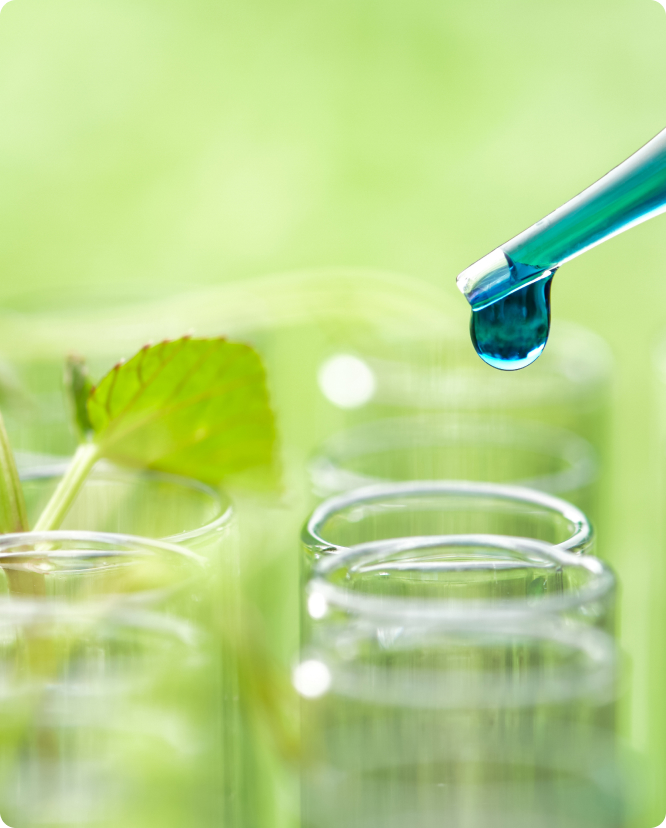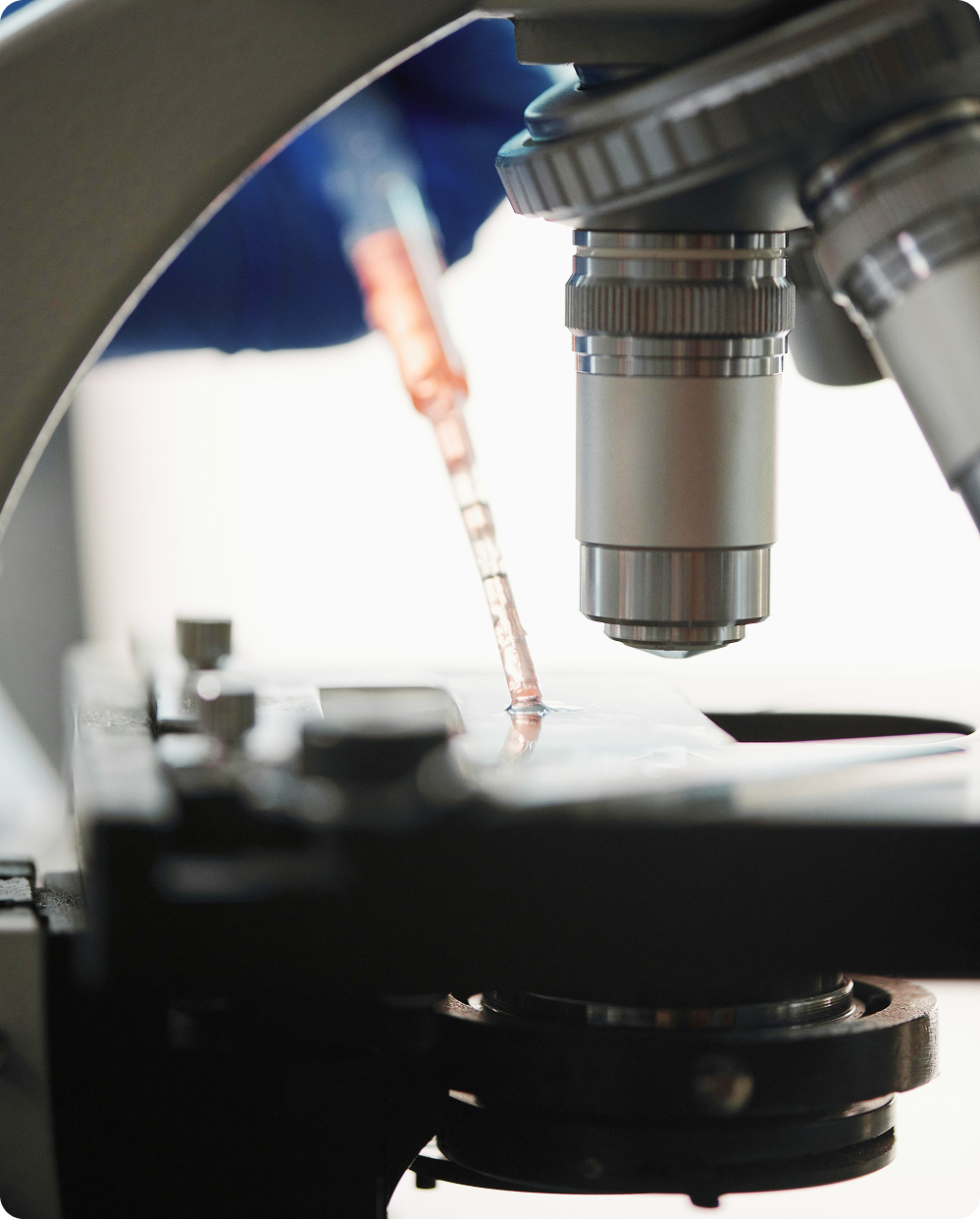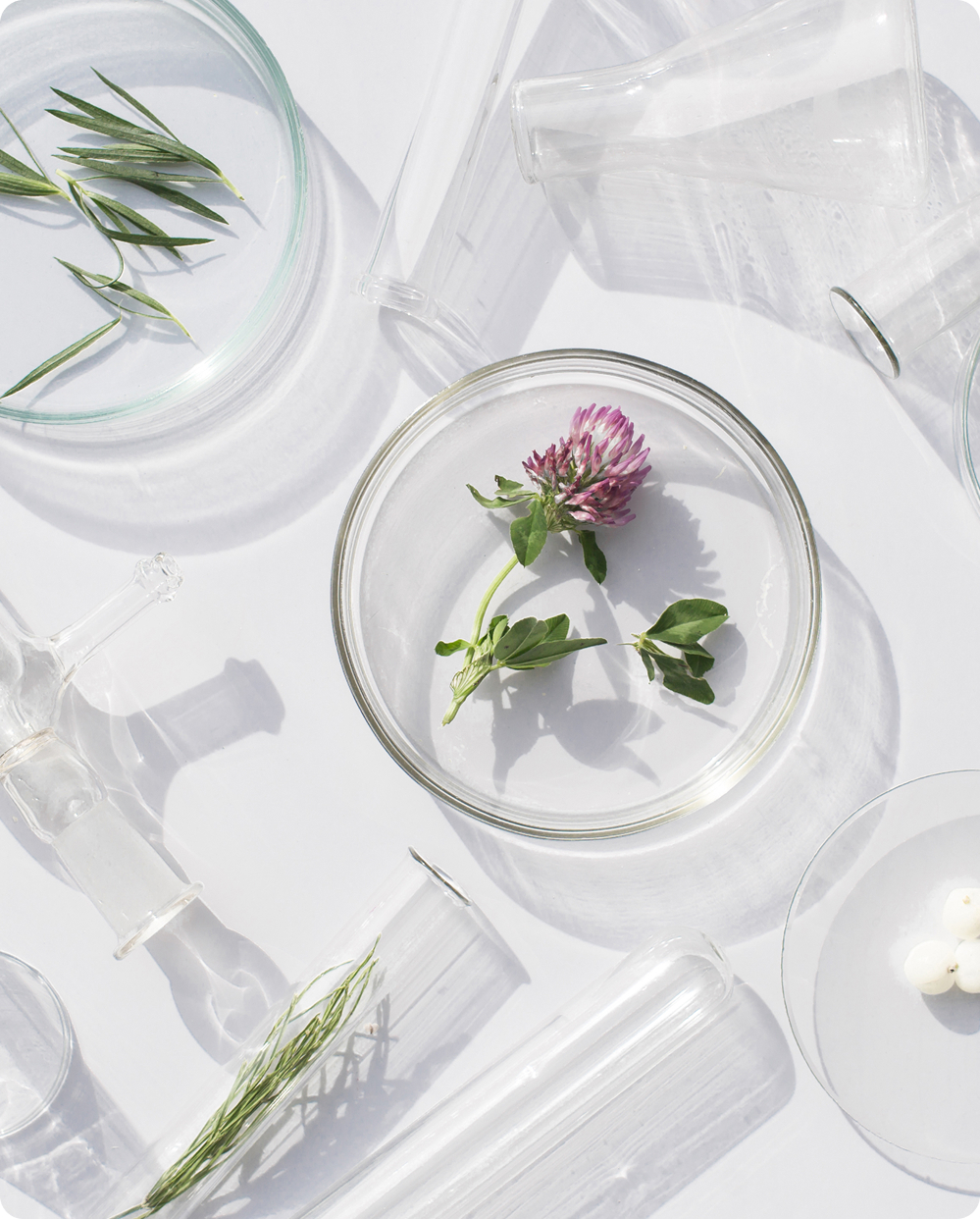Yes, your vagina cleans itself. And it does a pretty amazing job at it too.
This isn't just something people say to make you feel better about skipping the douche aisle at the pharmacy. Your vagina has evolved a sophisticated self-cleaning system that works 24/7 to keep you healthy. Understanding how this process works can help you support your body's natural defenses instead of accidentally working against them.
Think of your vagina like a self-regulating ecosystem that knows exactly what it's doing. When you understand the science behind this process, you'll see why most feminine hygiene products aren't just unnecessary but can actually disrupt the very system they claim to improve.
How does it work?
Your vagina maintains its health through three key mechanisms that work together like a self-regulating ecosystem.
Let's start with vaginal discharge, which gets a bad reputation but is actually the star of the show. That discharge you notice? It's not a sign that something's wrong. It's literally your vagina cleaning itself [1]. Your discharge is made up of cervical mucus, vaginal fluid, and old cells that your body is shedding. This natural process carries away dead cells, bacteria, and other debris, continuously refreshing your vaginal environment.
Here's where things get really interesting. Your vagina is home to trillions of bacteria, and before you say "ew," these are the good guys. The most important players are bacteria called Lactobacillus [2]. These beneficial bacteria produce lactic acid, which keeps your vaginal pH between 3.8 and 4.5. That's acidic enough to prevent harmful bacteria from surviving and multiplying, but perfect for the beneficial bacteria to thrive.
Your body actively supports this bacterial community. Estrogen keeps your vaginal lining healthy and encourages Lactobacillus growth. These bacteria then maintain that slightly acidic environment that protects you from infections [3]. This acidic environment is your vagina's primary defense mechanism. When your pH stays in that optimal range of 3.8 to 4.5, harmful bacteria simply cannot establish themselves and cause problems.
When everything's working properly, you have this beautiful balance where beneficial bacteria flourish and harmful bacteria can't get a foothold. Your body has been perfecting this system for thousands of years, and it's remarkably effective.
Why douching is a bad idea
Now you can see why douching is such a bad idea. When you douche, you're essentially firing your entire cleaning crew and security team all at once.
What douching actually does
Douching washes away your protective discharge along with all those beneficial Lactobacillus bacteria. It's like using a fire hose to clean a delicate watch. When you remove those protective bacteria, your vaginal pH changes, creating the perfect opportunity for harmful bacteria to take over [2].
What doctors say about douching
Both ACOG and the CDC strongly advise against douching [3, 4]. The research is clear: douching increases your risk of bacterial vaginosis, pelvic inflammatory disease, and pregnancy complications. The CDC specifically states that douching can "upset the normal balance of vaginal bacteria, increasing your risk for getting BV" [4].
What about vaginal odor?
Let's talk about something that makes a lot of people uncomfortable: vaginal odor. Here's the truth: a healthy vagina isn't supposed to smell like nothing.
Normal vaginal scent
Your vagina naturally has a mild scent, and that's completely normal [5]. It might be slightly musky, tangy, or even a little sweet. Some people describe it as similar to sourdough or plain yogurt. The key word here is "mild."
This scent can change throughout your cycle, and that's normal too. You might notice it's stronger around your period or after exercise. Your diet, hydration level, and even stress can influence your natural scent.
What matters most is knowing what's normal for you. Every person has their own scent signature, and yours might be different from your friend's or your sister's. That's perfectly fine.
When to be concerned about odor
So when should you be concerned? A strong, fishy odor is often the first sign of bacterial vaginosis (BV). This happens when your vaginal microbiome gets out of balance, usually with fewer protective Lactobacillus bacteria and more harmful bacteria taking over [4].
BV is incredibly common. It's actually the most common vaginal condition in women of reproductive age. The fishy smell often gets stronger after sex because semen is alkaline and can further disrupt your pH balance.
Other warning signs include a strong odor that persists for more than a few days, especially if it's accompanied by unusual discharge, itching, or burning. These symptoms suggest that your natural cleaning system needs some support to get back on track.
Supporting your vaginal health
When your vagina's natural balance gets disrupted, whether from antibiotics, stress, hormonal changes, or other factors, you can help support its recovery.
Probiotics and prebiotics
Sometimes your beneficial bacteria need reinforcements. This is where probiotics can help. Specific strains like Lactobacillus acidophilus and Lactobacillus bulgaricus can help replenish the good bacteria that keep your vaginal environment healthy.
But bacteria need food to thrive, which is where prebiotics come in. Think of prebiotics as fertilizer for your good bacteria. When you combine probiotics with prebiotics, you're giving your vaginal microbiome both the reinforcements and the resources it needs to get back to optimal health.
Neycher's Vaginal Synbiotic combines these clinically studied probiotic strains with the prebiotics they need to flourish. It's designed to work with your body's natural systems, not against them.
Restoring pH balance
If you're dealing with something like BV, restoring your vaginal acidity is crucial. Lactic acid, the same substance your beneficial bacteria naturally produce, can help bring your pH back to that protective acidic range.
When your pH is back where it should be, your good bacteria have a much better chance of reestablishing themselves and keeping harmful bacteria in check.
Neycher's BV Away uses lactic acid to help restore optimal pH, along with soothing ingredients like aloe vera and hyaluronic acid to support your tissues during recovery. It addresses the root cause of the imbalance while providing relief from symptoms.
When to see a doctor
While your vagina is remarkably good at taking care of itself, there are times when you should seek professional help. Don't hesitate to contact your healthcare provider if you experience:
- A strong, persistent fishy or foul odor that doesn't improve
- Unusual discharge accompanied by itching, burning, or pain
- Symptoms that keep coming back even after treatment
- Any concerns about changes in your normal patterns
Remember, there's no shame in asking questions about your vaginal health. Your healthcare provider has seen it all, and getting proper diagnosis and treatment is always better than trying to guess what's going on.
Trust your body
The bottom line? Your vagina is incredibly smart. It has evolved sophisticated mechanisms to keep itself healthy, and most of the time, the best thing you can do is get out of its way and let it work.
This means skipping the douches and harsh cleansing products, paying attention to what's normal for your body, and seeking help when something seems off. Your vagina has been taking care of business long before modern marketing convinced us it needed help.
Trust your body. Support it when needed. And remember that a healthy vagina is one that's allowed to do what it does best: clean itself.
This article is for informational purposes only and does not constitute medical advice. Always consult with a healthcare provider for any health concerns.
References
[1] Holdcroft, A. M., Ireland, D. J., & Payne, M. S. (2023). The Vaginal Microbiome in Health and Disease—What Role Do Common Intimate Hygiene Practices Play?. Microorganisms, 11(2), 298. https://pmc.ncbi.nlm.nih.gov/articles/PMC9959050/
[2] Lin, Y. P., Chen, W. C., Cheng, C. M., & Shen, C. J. (2021). Vaginal pH Value for Clinical Diagnosis and Treatment of Common Vaginitis. Diagnostics, 11(11), 1996. https://pmc.ncbi.nlm.nih.gov/articles/PMC8618584/
[3] American College of Obstetricians and Gynecologists. (2024). Vulvovaginal Health. https://www.acog.org/womens-health/faqs/vulvovaginal-health
[4] Centers for Disease Control and Prevention. (2023, December 11). About Bacterial Vaginosis (BV). https://www.cdc.gov/bacterial-vaginosis/about/index.html
[5] Mayo Clinic. (2025, February 18). Vaginal odor. https://www.mayoclinic.org/symptoms/vaginal-odor/basics/definition/sym-20050664


.jpg)





